The world of biblical scholarship has been rocked in recent days after its preeminent publication, the Review of Biblical Literature, retracted a book review just one day after its release due to plagiarism.
The retraction set off an informal investigation into other works of the author, Panayotis “Otis” Coutsoumpos, revealing an apparent pattern of plagiarism stretching back years—even decades.
“I’ve actually never seen another case of plagiarism this extensive,” Jim Tedrick, CEO of Wipf and Stock Publishers, told The Roys Report. “It’s really such a shame.”
The Review of Biblical Literature (RBL) is published annually by the Society of Biblical Literature (SBL), the oldest and largest academic association devoted to scholarship of the Bible. This month, it published a review by Coutsoumpos online of Daniel L. Akin and Thomas W. Hudgins’ book, “Getting into the Text.” The review was set to come out in RBL’s March 2022 print edition.
RBL “then retracted and removed that review from our host site (SBL Central) the following day,” Bob Buller, director of SBL Press, said in an emailed statement. “As we explained in a subsequent email to our subscribers, we took that action because the review ‘was determined to have been plagiarized.’ ”
Your tax-deductible gift helps our journalists report the truth and hold Christian leaders and organizations accountable. Give a gift of $30 or more to The Roys Report this month, and you will receive a copy of “Hurt and Healed by the Church” by Ryan George. To donate, click here.
He declined to explain how editors came to that decision.
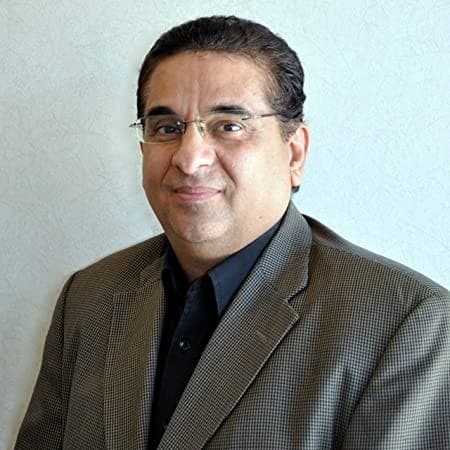
Coutsoumpos, a relatively obscure but prolific Adventist scholar, had submitted the review. (The scholar has the same name as his son, who is not accused of plagiarism.) However, the text appeared to have been lifted from a 2017 review authored by Jacob Cerone, a PhD student of Protestant theology at one of Germany’s oldest research universities.
Scholars soon found questionable passages in his other works, shocking the biblical literature community. Colleagues started distancing themselves from the author.
“I just want to reiterate that as an organization and as a collective of scholars who work at Adventist institutions we don’t approve of plagiarism,” said Cristian Cardozo, a New Testament professor at Colombia Adventist University.
I just recently became aware of the plagiarized book review by Panayotis. I usually don't comment on this kind of situations, but now I have to since I am mentioned in the acknowledgement section of one of his books. First, He thanked me because I encouraged him to write said 1/
— cristian cardozo (@criscardozomin) March 15, 2022
A postdoctoral New Testament student at Oxford University, Alberto Solano, called the revelations “absolutely terrible” in a recent tweet.
“A discovery of this magnitude . . . is an affront and an embarrassment for the Spanish-speaking academic world, particularly in Mexico,” he wrote in Spanish.
https://twitter.com/albsolano/status/1503733882276958210
Coutsoumpos had previously been a Bible professor at the University of Montemorelos in Mexico, according to his academic profile.
The Roys Report reached out to Coutsoumpos for comment for this story. He acknowledged what he had done was “unethical” and apologized for the inconvenience he had caused.
“I think I have learned my lesson the hard way,” Coutsoumpos said by email.
Scholars discover a pattern
Plagiarism is “very, very rare” in professional academic circles, said Jamin Hubner, a former associate professor who has published over 70 peer-reviewed book reviews.
It’s also a “very serious charge” in academia, he said. It can end a scholar’s career.
So after the RBL retraction, other scholars started looking up more articles and books by Coutsoumpos, and noticed uncanny similarities to other people’s work.
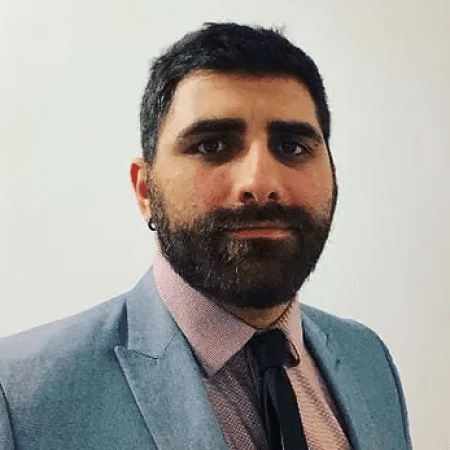
Logan Williams, who earned his doctorate in Pauline scholarship, said discovering potentially plagiarized passages was as simple as copying a sentence into Google.
“Google will recognize synonyms and recognize things that are similar,” he said. “I just went to one of his books, what I could find I think on the Amazon preview, and typed it into Google, and it showed up on Google Books as somebody elses’s.”
Others, he said, searched sentences from Coutsoumpos’s articles and book reviews.
“We just kept getting hits on Google for these things,” Williams said.
He also believes Coutsoumpos’s thesis warrants a closer look, because “no one goes and submits a plagiarized RBL review 20 years after that PhD thesis if they’ve never plagiarized before.”
Williams looked through less than 10 pages of the thesis and found three passages closely paraphrased from other sources. Coutsoumpos cited the other sources in footnotes to two of the passages.

Hubner said using other people’s academic work that way would not constitute plagiarism, in his opinion.
If a scholar has cited the source “somewhere in the book . . . like either the copyright page, or any footnote—or in the main text, they say, I’ve written on this elsewhere or I’m drawing on this other source—then I don’t think that’s a big deal,” Hubner said.
What Hubner found problematic was the apparent use of uncited material, especially from graduate students.
“One of these cases was from a graduate student’s blog or something,” he said. “That’s really dirty there.”
A publisher responds to the revelations
One book review published last year in the Biblical Theology Bulletin, a peer-reviewed academic journal, apparently used uncited material from a review of the same book published in 2019 by Phillip J. Long on his blog.
A 2017 paper by Coutsoumpos published in Biblica, a peer-reviewed journal, contained some nearly identical language from a 1995 paper published in the journal New Testament Studies. The 2017 paper did not cite the earlier work.
Decided to scroll through the plagiarist's articles and saw one I was like 90% sure I had read before. Sure enough, lol. On the left the original from Pendrick in NTS (1995). On the right Coutsoumpos in Biblica (2017). The absolute cheek of adding in "Two decades ago" !💀 pic.twitter.com/SW0WNgd4tR
— Jeremiah Bailey (@NTECProf) March 15, 2022
And another book review published in 2015 in Coutsoumpos’s name uses material nearly verbatim from a book review by Andrew J.W. Smith published the year before by the Southern Baptist Theological Seminary. Coutsoumpos did not attribute Smith’s review, either.
Books purportedly written by Coutsoumpos contain questionable passages.
At least a portion of Coutsoumpos’s 2019 commentary on Galatians resembles matter in Eugene Boring’s introductory textbook on the New Testament published in 2012.
Some of a 2021 commentary on Hebrews purportedly written by Coutsoumpos and self-published under his imprint “Biblical Studies Institute” resembles material in “The Theology of the Letter to the Hebrews” by Barnabas Lindars, too.
Wipf and Stock Publishers, an academic publishing house, had released both the commentaries, as well as four other books by Coutsoumpos.
Tedrick, the imprint’s CEO and director of publications, told The Roys Report they are all being pulled.
“It is clear that he did plagiarize,” Tedrick wrote in an email. “The extent of his plagiarism is uncertain, but as a publisher we have to assume there are more instances throughout his books. Because of this, the day we learned of the plagiarism we initiated taking his books out-of-print.”
TRR asked Wipf and Stock about the commentaries and “Paul of Tarsus,” another book authored by Coutsoumpos. Tedrick said Coutsoumpos’s books originally came to Wipf and Stock through its reprint department, which handles previously published works.
“It is rare for us to come across a case of plagiarism, especially in books that have been previously published and in circulation for years,” Tedrick said by email. “I think what makes Coutsoumpos’s case more problematic is that these works were basically self-published by him under his own publishing imprint called Biblical Studies Institute.”
But they had been in print for years, he said, with no red flags coming up. So “we had no reason to suspect that there should be any concern about his books.”
This article has been corrected to accurately describe Jacob Cerone’s field of study.
 Sarah Einselen is an award-winning writer and editor based in Texas.
Sarah Einselen is an award-winning writer and editor based in Texas.




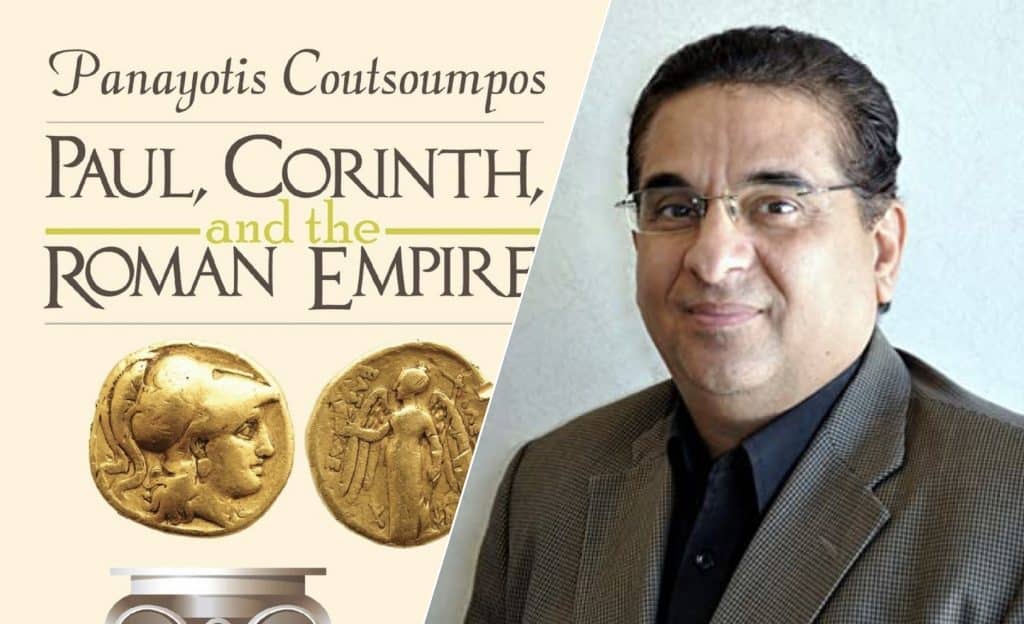
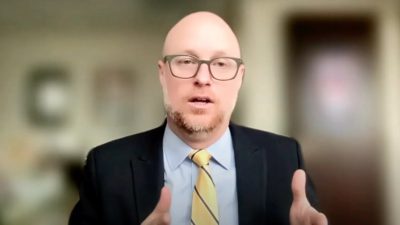

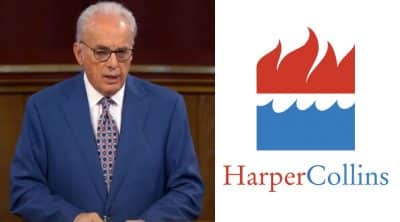




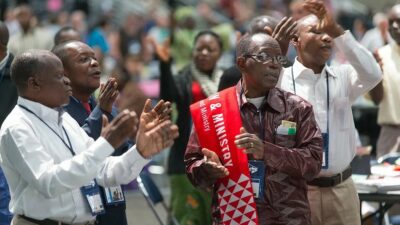
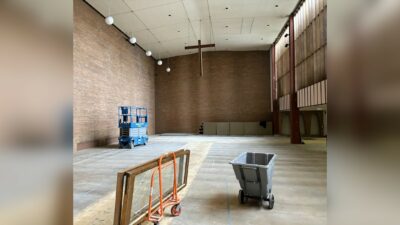






8 Responses
If it is ok for Ed Litton to plagiarize it’s fine for others too. At least that’s the conclusion made by his repeated invitations to speak at seminaries and conferences.
Students would have been summarily dismissed from seminary with a tract record of plagiarism like Litton’s. Why does this now shock anyone? Oh, wait, he “apologized.” My bad!
None of us wants to ask probing questions of our brothers and sisters in Christ if the ship appears to be doing well under sail. Either nobody cares to ask a prolific author or pastor how they are able to be so productive and what the cost is, or else those figures don’t allow anyone into that position of accountability who doesn’t mutually benefit from their success (like a pastor being held accountable by a fellow church staff member).
Our former pastor was caught-out performing a Francis Chan sermon. https://www.youtube.com/watch?v=TyuDpdows6Y
It is right that others are identified for what is such unauthentic conduct. Doing such a thing in education, arts or business would have very serious consequences.
Jacob Cerone was the one who saw his work being plagiarized and discussed the issue with RBL. That started the ball rolling.
Some may remember the incident with noted New Testament scholar Peter T. O’Brien and a number of commentaries that he published.
See link for more details from the publisher https://www.eerdmans.com/Pages/Item/59043/Commentary-Statement.aspx
That looks like worse plagiarism than Derek W.H. Thomas’ commentary on Acts that was pulled by the publisher!
Well, why not? I mean if the pastor of Morningside Baptist Church in Valdosta Georgia, Dr. Wayne Robertson could get away with plagiarism of Ray Stedman sermons for five years and still remain as pastor after he is clearly not above reproach, then why shouldn’t any other false prophet be allowed to follow his example. I mean, it’s not like the bibles standard for elders mean anything to these clergy men. It’s all a performance for a paycheck.
Plagiarism is more common in our churches and evangelical organizations than many realize. The school where I work (a Christian school) uses Google Originality reports to check for plagiarism, some schools use Turn It In for such purposes, and would give students low or failing grades accordingly. The state university where I spent many years considered plagiarism Academic Misconduct, with faculty being subject to discipline and potential dismissal.
Why does the evangelical community allow plagiarism, calling it a “ministry resource”?
– Greg